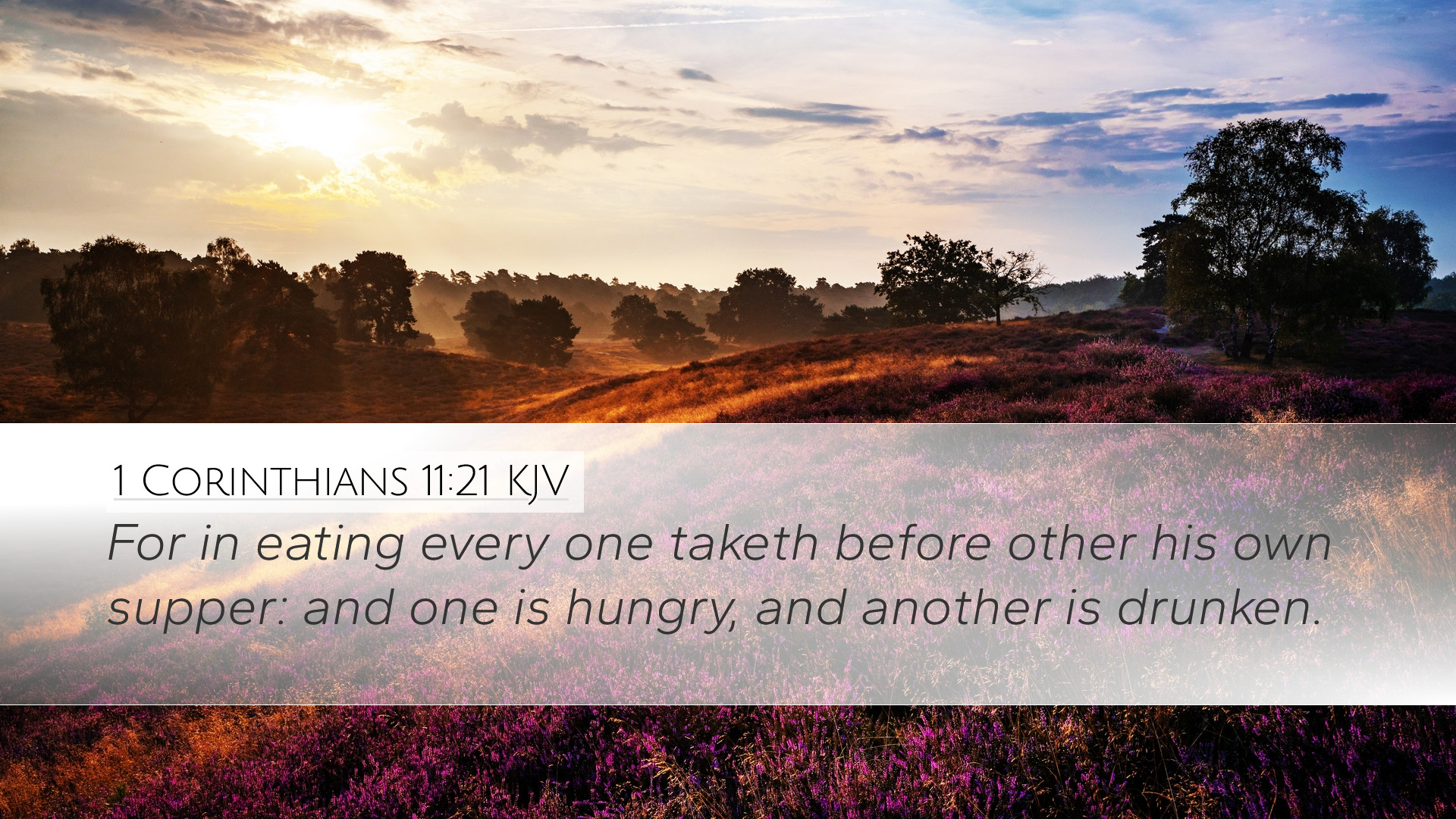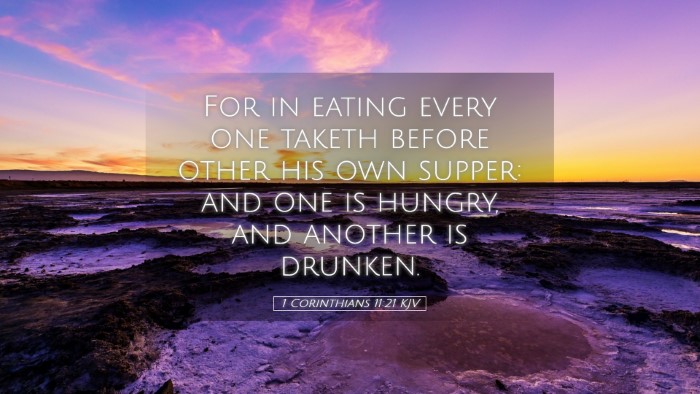Commentary on 1 Corinthians 11:21
Verse: "For in eating, every one taketh before other his own supper: and one is hungry, and another is drunken." (1 Corinthians 11:21)
Introduction
This verse from Paul's epistle to the Corinthians unveils critical issues facing the early church, particularly with respect to the Lord's Supper. This commentary synthesizes insights from several esteemed public domain commentaries, providing a profound understanding relevant for pastors, students, theologians, and Bible scholars.
Contextual Background
The Corinthian church was a microcosm of the larger Greco-Roman society, plagued by division and social stratification. Paul addresses various issues within the church, one of which pertains to the manner in which members partake in the Lord's Supper. This verse specifically highlights the disorderly behavior occurring during communal meals, which were a part of the practice.
Exegesis of the Verse
The Apostle Paul criticizes the Corinthians for their selfishness during the communal meal associated with the Lord’s Supper. Each member, in an eagerness to fulfill their appetite, neglected the communal aspect dictated by Christian love.
Key Insights
- Selfishness and Division: Matthew Henry suggests that the problem at hand is rooted not only in individual appetites but also in a failure to recognize the body of Christ in the church community. The consumption of personal meals before others had led to an environment of division and inequality.
- Social Stratification: Albert Barnes elucidates that the wealthy and the poor were seemingly separated during the meal. The wealthy, who had abundant resources, overindulged, while the poor went hungry. This demonstrated a lack of unity, contradictory to the essence of the body of Christ.
- Spiritual Implications: Adam Clarke remarks that this behavior was not merely a social failure but amounted to a spiritual crisis, as it reflected an underlying disregard for the community and the sacrificial aspects of Christ's love.
Theological Implications
The verse raises essential theological questions about community, equality, and the nature of the church as the body of Christ. The Lord's Supper functions not just as a remembrance of Christ's sacrifice but as a celebration of unity among believers.
The Nature of the Lord's Supper
The Lord's Supper is intended to be a proclamation of Christ's death and resurrection, fostering fellowship among believers. Paul reminds the church that participation in this sacred act should enhance, rather than detract from, the communal bond established in Christ.
Unity in Christ
Henry emphasizes that such egocentric actions fail to recognize that all believers, regardless of social or economic status, are equally valued in the eyes of God. The church is to embody unity, edifying and uplifting one another, transcending worldly divisions.
Practical Applications
For contemporary believers, this verse compels reflection on practices within the church. It serves as a call to promote inclusivity and love among congregants during sacred rituals, ensuring that no one is marginalized.
Creating an Inclusive Community
- Reflecting on Personal Conduct: Each church member is called to examine their conduct in communal gatherings and ensure that they are fostering an environment of unity.
- Encouraging Generosity: Congregations are challenged to exhibit generosity towards those who are less fortunate, just as Christ showed love toward all.
- Remembrance with Purpose: The act of partaking in the Lord's Supper should serve as a reminder to demonstrate love and regard for one another, rather than allowing secular attitudes of individualism to creep in.
Conclusion
1 Corinthians 11:21 invites readers to engage with the deeper reality of Christian community, emphasizing that the Lord’s Supper is more than a mere ritual; it is a profound expression of unity in Christ. By addressing the issues in the Corinthian church, Paul provides timeless principles that challenge believers today to foster love, inclusivity, and respect in their gatherings. The insights drawn from the public domain commentators deepen this understanding and invite further contemplation on the nature of the church as a divine fellowship.


